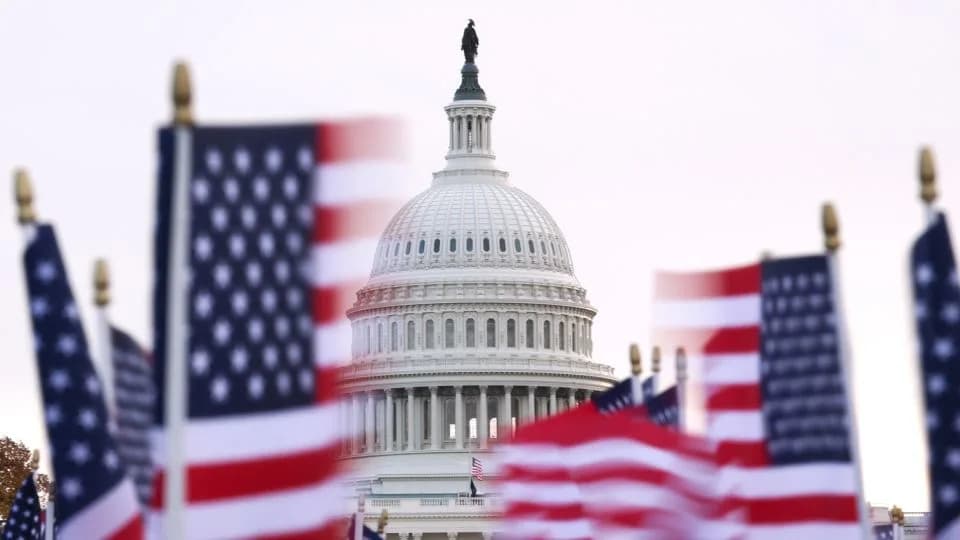The FAA has ordered staged reductions in commercial flights as the federal government shutdown continues, citing safety concerns while air-traffic controllers work without pay. FlightAware reported more than 800 US-linked cancellations, and 40 high-traffic airports face cuts rising from 4% to 10%. Cirium estimates reductions could total up to 1,800 flights and 268,000 seats. The disruption arrives about two weeks before Thanksgiving and highlights long-standing staffing and equipment issues in US air traffic control.
FAA Orders Major Flight Cuts as US Shutdown Triggers 800+ Cancellations — Disruption Looms Ahead of Thanksgiving

FAA orders sharp reductions as government shutdown drags on
A US government order to sharply reduce commercial air traffic amid the ongoing federal shutdown has taken effect, forcing major airports to trim schedules and leaving travellers scrambling to adjust plans. The Federal Aviation Administration (FAA) says the step is needed to preserve air-traffic-control safety while many controllers continue to work without pay.
Scope and immediate impact
By Friday morning the flight-tracking site FlightAware reported more than 800 US-linked cancellations, and its data indicated roughly four in five cancelled flights worldwide were tied to the US shutdown. The US Transportation Department has directed 40 "high-traffic" airports to cut operations; a 4% reduction is already in place at those hubs and is scheduled to rise to 10% over the coming week.
"We are seeing signs of stress in the system, so we are proactively reducing the number of flights to make sure the American people continue to fly safely," said FAA administrator Bryan Bedford.
Airlines and affected hubs
Major carriers including United, Southwest and Delta began cancelling flights as they adjusted schedules in response to the directive. United's CEO Scott Kirby said the airline will make rolling updates to give customers advance notice and minimise disruption; Delta said it expects to operate the vast majority of its flights. American Airlines said most customers should be unaffected and that long-haul international services would remain on schedule, while offering rebooking or refunds.
The measures affect airports in more than two dozen states and include some of the nation's busiest hubs — Atlanta, Charlotte, Denver, Dallas/Fort Worth, Orlando, Los Angeles (LAX), Miami, San Francisco and New York's JFK — as well as service reductions in major cities such as Houston and Chicago.
Scale, timing and wider consequences
Aviation analytics firm Cirium estimates the reductions could total as many as 1,800 flights and more than 268,000 seats. The disruption arrives roughly two weeks before Thanksgiving, traditionally the busiest US travel period, raising pressure on lawmakers to resolve the shutdown.
Officials and industry analysts warn that the politically driven reductions are compounding long-standing structural problems in US air travel: chronic understaffing of air-traffic control, ageing equipment, congested airspace and scheduling constraints.
"The FAA is a slow-moving bureaucracy... it makes them ultra-conservative in terms of the technologies they could be using," said Michael Taylor, a travel analyst at J.D. Power, noting the agency still relies on legacy systems and faces a long-term staffing shortfall.
Political context
The shutdown began last month after talks between Republicans and Democrats stalled over spending plans. A tentative plan to reopen the government collapsed when Senate Democrats rejected a proposal that would have tied a short-term continuing resolution to three full-year appropriations bills. Transportation Secretary Sean Duffy has publicly blamed Democrats for potential "mass chaos," while both parties remain locked in disagreement.
The administration says the shutdown has created shortages of up to 3,000 air-traffic controllers, and at least 11,000 other federal employees designated as essential have gone without pay. The shutdown has now surpassed the previous record set during the 2018–19 stoppage.
What travellers should do
Passengers should check airline and airport websites for the latest schedule updates, consider rebooking where possible, and allow extra time at airports. Airlines are offering refunds or rebooking options for affected customers.
The situation remains fluid, and further reductions are expected if the shutdown continues. Lawmakers face mounting pressure to reach an agreement as airlines, airports and millions of travellers prepare for potential disruption through the holiday period.
Help us improve.




























